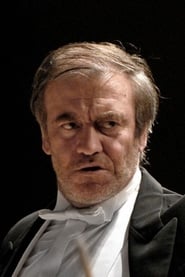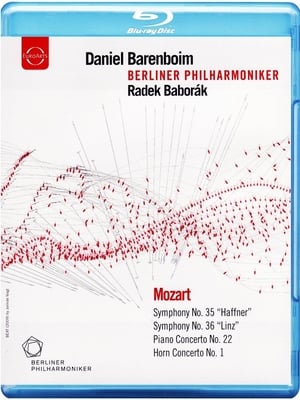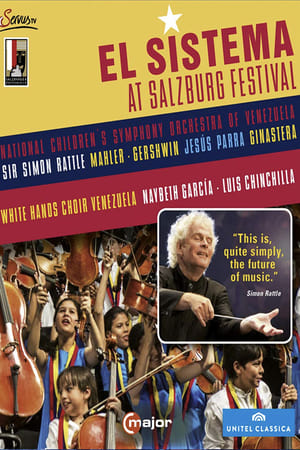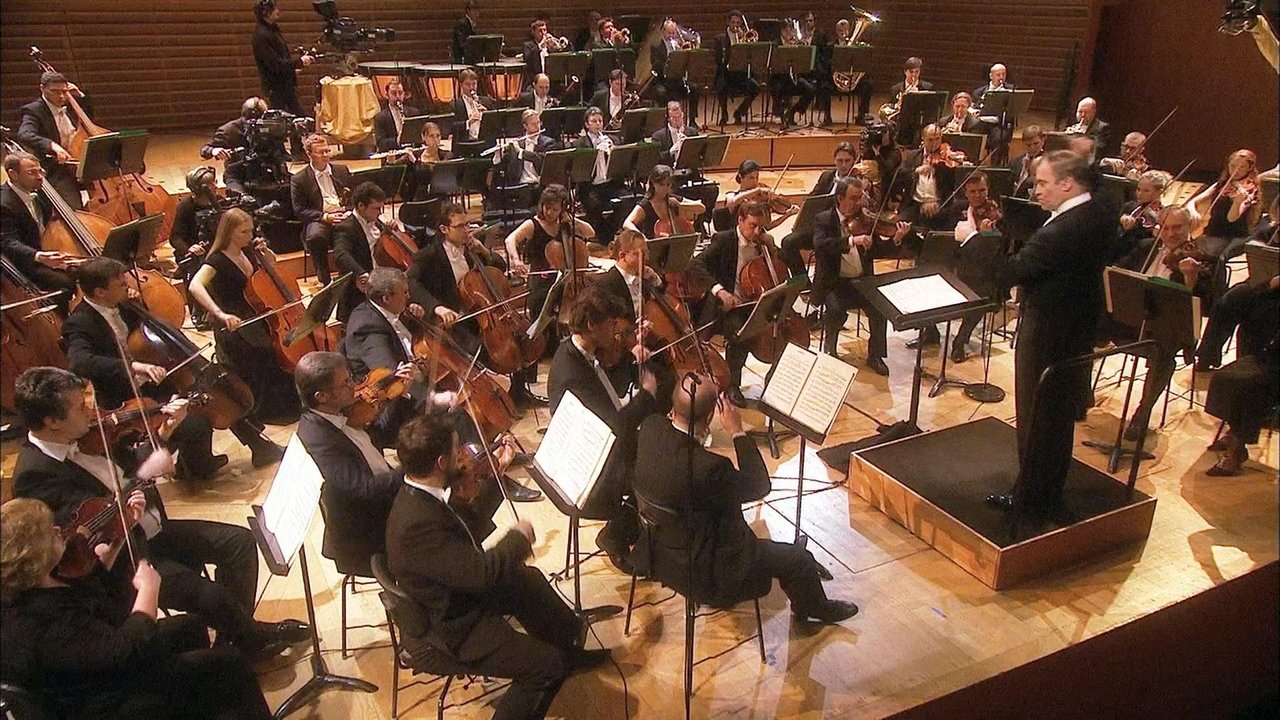
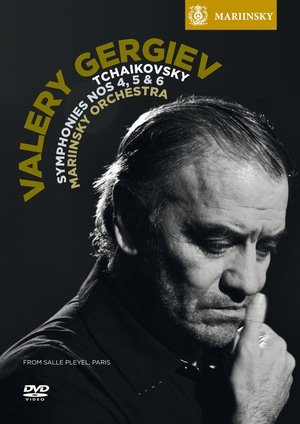
Tchaikovsky: Symphonies Nos. 4, 5 & 6 - Gergiev(2011)
Valery Gergiev is widely recognised as the greatest modern interpreter of Tchaikovsky’s music and the Mariinsky holds a peerless reputation in the repertoire. Together they deliver definitive interpretations of Tchaikovsky’s most popular symphonies. These acclaimed performances were filmed at Salle Pleyel in Paris during January 2010, directed by Andy Sommer. The themes of fate and death pervade Tchaikovsky’s final symphonies. The composition of the Fourth Symphony coincided with the breakdown of Tchaikovsky’s marriage and a failed suicide attempt, yet he considered it to be his greatest. In contrast he believed his Fifth to be flawed and uninviting, yet today this heartfelt work is widely regarded as one of his finest. The subject of fate is further instilled in the Sixth Symphony, premiered shortly before Tchaikovsky’s death. It was posthumously entitled ‘Pathétique’ by his brother and is a deeply melancholic work, full of dynamic extremes and an inherent sense of finality.
Movie: Tchaikovsky: Symphonies Nos. 4, 5 & 6 - Gergiev
Top 2 Billed Cast
Video Trailer Tchaikovsky: Symphonies Nos. 4, 5 & 6 - Gergiev
Similar Movies
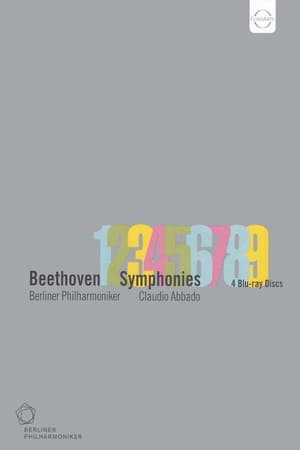 0.0
0.0Beethoven: The Symphonies(en)
Conductor: Claudio Abbado. Orchestra/Ensemble: Berlin Philharmonic Orchestra. 1.Symphony no 1 in C major, Op. 21 2. Symphony no 2 in D major, Op. 36 3. Symphony no 3 in E flat major, Op. 55 "Eroica" 4. Symphony no 4 in B flat major, Op. 60 5. Symphony no 5 in C minor, Op. 67 6. Symphony no 6 in F major, Op. 68 "Pastoral" 7. Symphony no 7 in A major, Op. 92 8. Symphony no 8 in F major, Op. 93 9. Symphony no 9 in D minor, Op. 125 "Choral"
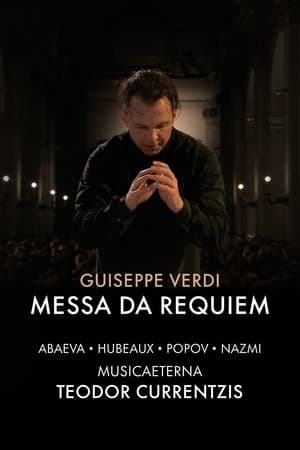 9.0
9.0Verdi: Messa da Requiem(en)
Guiseppe Verdi’s Requiem is still heard mainly in theatre and concert halls. However, the author himself intended this composition to be performed in church, and on special occasions. Conducted by Teodor Currentzis and performed by soloists and musicAeterna choir and orchestra, Verdi’s famous funeral mass returns from the concert stage to Milan’s Church of San Marco, the same place where it was premiered in 1874. The seven parts of the Requiem become steps on the way to comprehending the sacrament of death, the operatic character of orchestral and vocal writing acquires the strictness of the Catholic tradition, and musical images of rage, despair, and rebellion against the inevitable end are crowned with appeasement.
Variácie slávy(sk)
W. A. Mozart's childhood was very busy, connected with constant travelling, full of fame and admiration. His father Leopold, an accomplished musician, led his son purposefully towards the role of child prodigy. However, their travels in Europe were not only associated with success, but also with the family's struggle for subsistence and the mother's eternal fear for the fragile health of her children. And so we follow Mozart's first steps in the world of music to the premiere of his first opera, La finta semplice, which he wrote at the age of twelve.
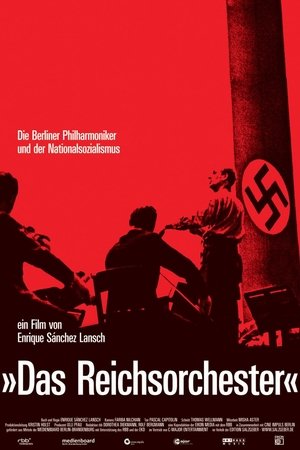 6.5
6.5The Reich's Orchestra(de)
In 2007, the Berliner Philharmoniker celebrated their 125th anniversary. Film director Enrique Sánchez Lansch took this occasion to tell a hitherto unknown chapter in the history of the Berliner Philharmoniker: the years of National Socialism from 1933 to 1945. The film, “The Reichsorchester”, made in collaboration with musicians of the orchestra and its archive.
 6.0
6.0Seiji Ozawa — Back to Japan(fr)
The 82-year-old Japanese Seiji Ozawa is one of the last remaining conductor legends of a golden era. Portrait of the ambitious maestro and educator who made the western repertoire really well known in Japan.
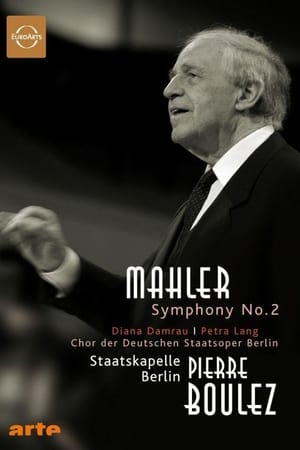 0.0
0.0Gustav Mahler: Symphony No. 2 Resurrection(en)
In 2005, the Staatsoper Berlin and its orchestra, the Staatskapelle Berlin under musical director Daniel Barenboim, celebrated a series of events to celebrate the 80th birthday of French conductor and composer Pierre Boulez. Artistically associated for decades with Barenboim and Berlin, Pierre Boulez is one of today's most distinguished composers and conductors. As part of the celebration, Boulez conducted a performance of Mahler's "Resurrection" Symphony at the Berlin Philharmonie. With his uncompromising approach to the score, Pierre Boulez's Mahler readings have long fascinated critics and audiences alike. Boulez eschews the romanticized readings common in performance tradition and, instead, reveals the real joy and terror in Mahler's large-scale symphonies.
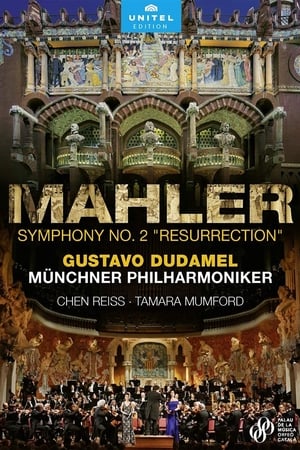 0.0
0.0Mahler: Symphony No. 2, Resurrection (Gustavo Dudamel)(en)
Barcelona’s Palau de la Música Catalana, one of the world’s most beautiful concert halls, hosted Gustavo Dudamel and the Münchner Philharmoniker with an unforgettable performance of Mahler’s Symphony No. 2 “The Resurrection”. The composer emphasizes life and death in all its terrible and stunning splendour in this overwhelming opus: “There is nothing except the complete substance of my whole life”, he remarked on his all-embracing oeuvre. Gustavo Dudamel, who said it was “a privilege to conduct this work in this unique venue”, and his ensemble were celebrated with more than ten minutes of applause.
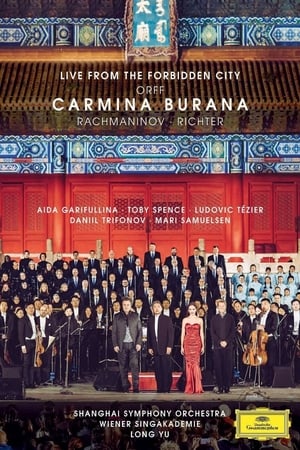 10.0
10.0The Forbidden City Concert: Carmina Burana(en)
A spectacular concert at the site of Beijing’s Forbidden City. The concert features the renowned Shanghai Symphony Orchestra and Maestro Long Yu, who perform Orff’s Carmina Burana with Aida Garifullina, Toby Spence and Ludovic Tézier, before being joined by Daniil Trifonov for Rachmaninov’s Piano Concerto No.2 and Mari Samuelsen for Max Richter’s Violin piece "November". Length 114′ (complete repertoire) / 71′ (Carmina Burana & Jasmine Flower Song) / 43′ (Piano Concert & November)
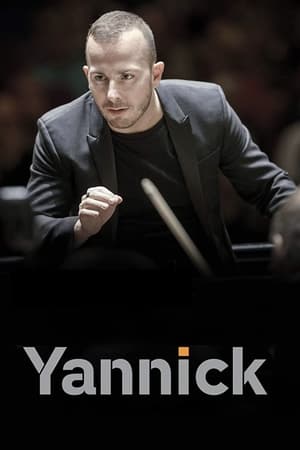 0.0
0.0Yannick(en)
At 41 years old, the Quebecois conductor Yannick Nézet-Séguin has established himself as one of the most gifted maestros of his generation, with numerous prestigious posts with some of the world’s greatest orchestras already under his belt, including the Philadelphia Orchestra and the Rotterdam Philharmonic Orchestra (music director), London Philharmonic Orchestra (principal guest conductor), and the Orchestre métropolitain de Montréal. One week before Nézet-Séguin's official nomination as music director of the Rotterdam Philharmonic Orchestra in 2008, filmmaker Christiaan van Schermbeek met the maestro for the first time. The once-in-a-lifetime event inspired Schermbeek to begin this documentary project, giving us a fascinating glimpse into the life of a truly extraordinary individual.
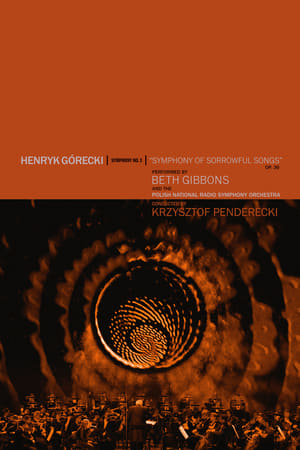 10.0
10.0Beth Gibbons: Henryk Górecki: Symphony No. 3 (Symphony of Sorrowful Songs)(en)
Beth Gibbons (vocalist for acclaimed UK band Portishead) was formally invited to Poland in 2014 to sing soprano at Warsaw’s Grand Theatre. This performance forms the basis of the film and album titled Henryk Górecki: Symphony No. 3 (Symphony of Sorrowful Songs) performed by Beth Gibbons and the Polish National Radio Symphony Orchestra, conducted by Krzysztof Penderecki.
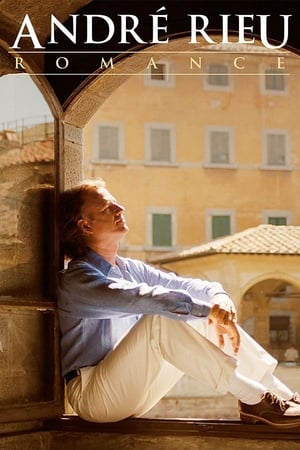 10.0
10.0André Rieu - Romance(de)
01. The Godfather Waltz (N. Rota) 02. Romance Anonyme (Anonyme) 03. Lagune Waltz (J. Strauss) 04. O Mio Babbino Caro (G. Puccini) 05. The Rose (A. McBroom) 06. Italiana (O. Respighi) 07. You Are The Emperor Of My Heart (R. Stolz) 08. Sous Le Ciel De Paris (H. Giraud) 09. Roses From The South (J. Strauss) 10. My Heart Will Go On (J. Horner) 11. Intermezzo Sinfonico (M. Mascagni) 12. Moonlight (Kojo No Tsuki) (R. Taki) 13. The Last Rose (F. von Flotow) 14. Limburg Anthem (H. Thijssen / G. Krekelberg) 15. Concierto De Aranjuez (J. Rodrigo) 16. Swinging Bells Of Limburg (J. Hoes) 17. Nightingale Serenade (E. Toselli) 18. Auld Lang Syne (Traditional) 19. Ode To Maastricht (Y. Duteil) 20. Lullaby (J. Brahms)
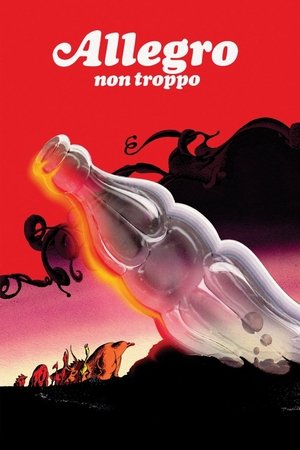 7.2
7.2Allegro non troppo(it)
The film is a parody of Disney's Fantasia, though possibly more of a challenge to Fantasia than parody status would imply. In the context of this film, "Allegro non Troppo" means Not So Fast!, an interjection meaning "slow down" or "think before you act" and refers to the film's pessimistic view of Western progress (as opposed to the optimism of Disney's original).
 10.0
10.0Le Robot Solitaire(xx)
Robots live alongside mankind in a not too distant future, but are they really living?
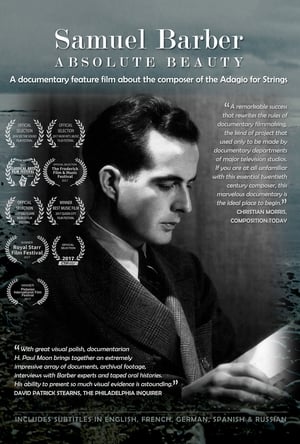 10.0
10.0Samuel Barber: Absolute Beauty(en)
Known for his mournful "Adagio for Strings," Samuel Barber was never quite fashionable. This acclaimed film is a probing exploration of his music and melancholia. Performance, oral history, musicology, and biography combine to explore the life and music of one of America’s greatest composers. Features Thomas Hampson, Leonard Slatkin, Marin Alsop and many more of the world's leading experts on Barber's music, with tributes from composers Leonard Bernstein, Aaron Copland, Virgil Thomson and William Schuman. The film was broadcast on PBS, and screened at nine film festivals internationally, with three best-of awards. It was named a Recording of the Year 2017 by MusicWeb International.
 0.0
0.0The Metropolitan Opera Centennial Gala(en)
In celebration of its 100th anniversary in 1983, the Metropolitan Opera hosts a four-hour performance uniting some of the world's most spellbinding opera singers and conductors. The event includes a ballet from Samson et Dalila and boasts incredible classical performances from Kathleen Battle, Plácido Domingo, Jose Carerras, Leonard Bernstein, Marilyn Horne, Leona Mitchell, Luciano Pavarotti and many more.
 6.8
6.8Four Minutes(de)
Jenny is young. Her life is over. She killed someone. And she would do it again. When an 80-year-old piano teacher discovers the girl’s secret, her brutality and her dreams, she decides to transform her pupil into the musical wunderkind she once was.
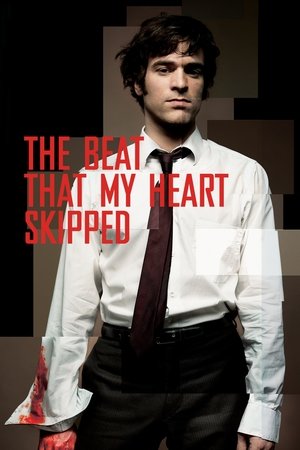 6.9
6.9The Beat That My Heart Skipped(fr)
A ruthless real estate agent discovers a passion for piano and auditions with help from a young virtuoso, but the pressures of his corrupt career threaten to derail his musical aspirations.
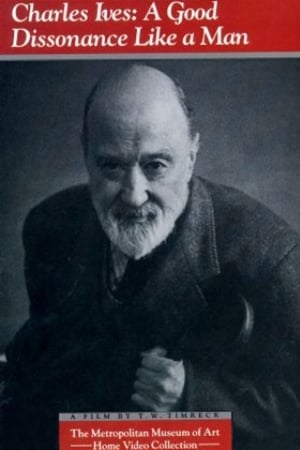 0.0
0.0Charles Ives: A Good Dissonance Like a Man(en)
A thoroughly researched biopic of Charles Ives, America's greatest and most innovative composer (and insurance executive), who combined strikingly futuristic experimentalism with gentle nostalgia. Includes narration taken directly from Ives's own writings, and reminiscence from those who knew him.
